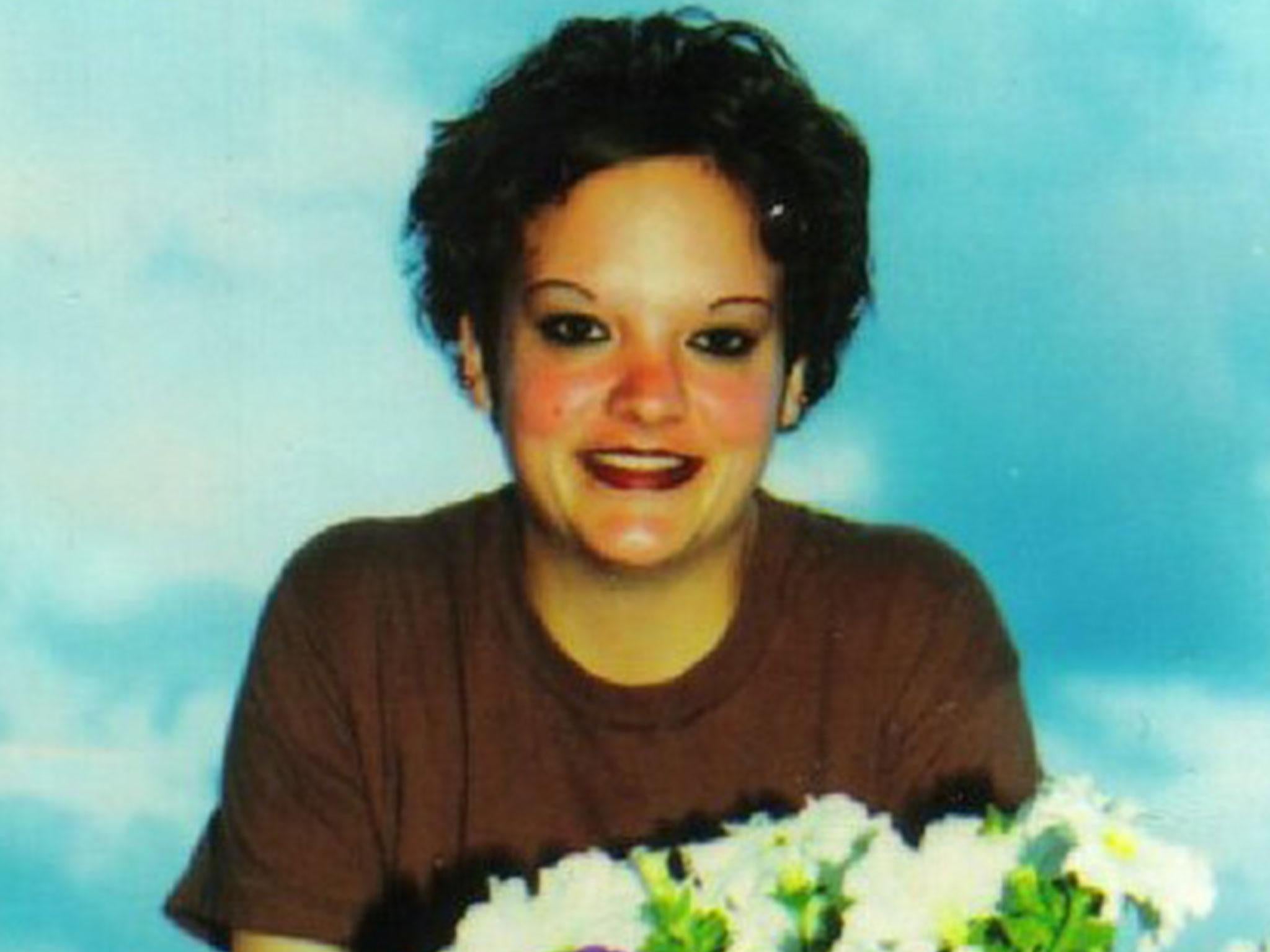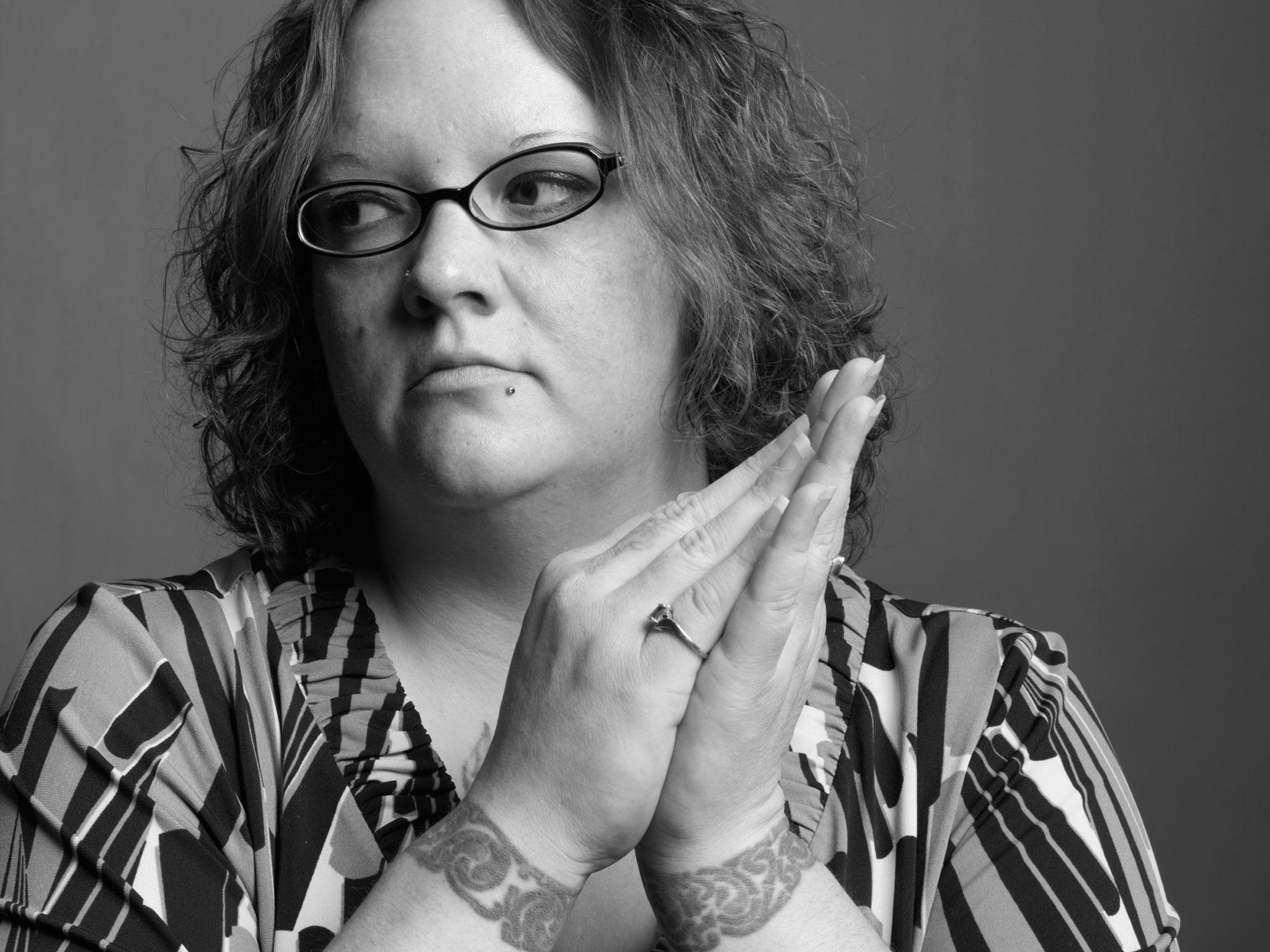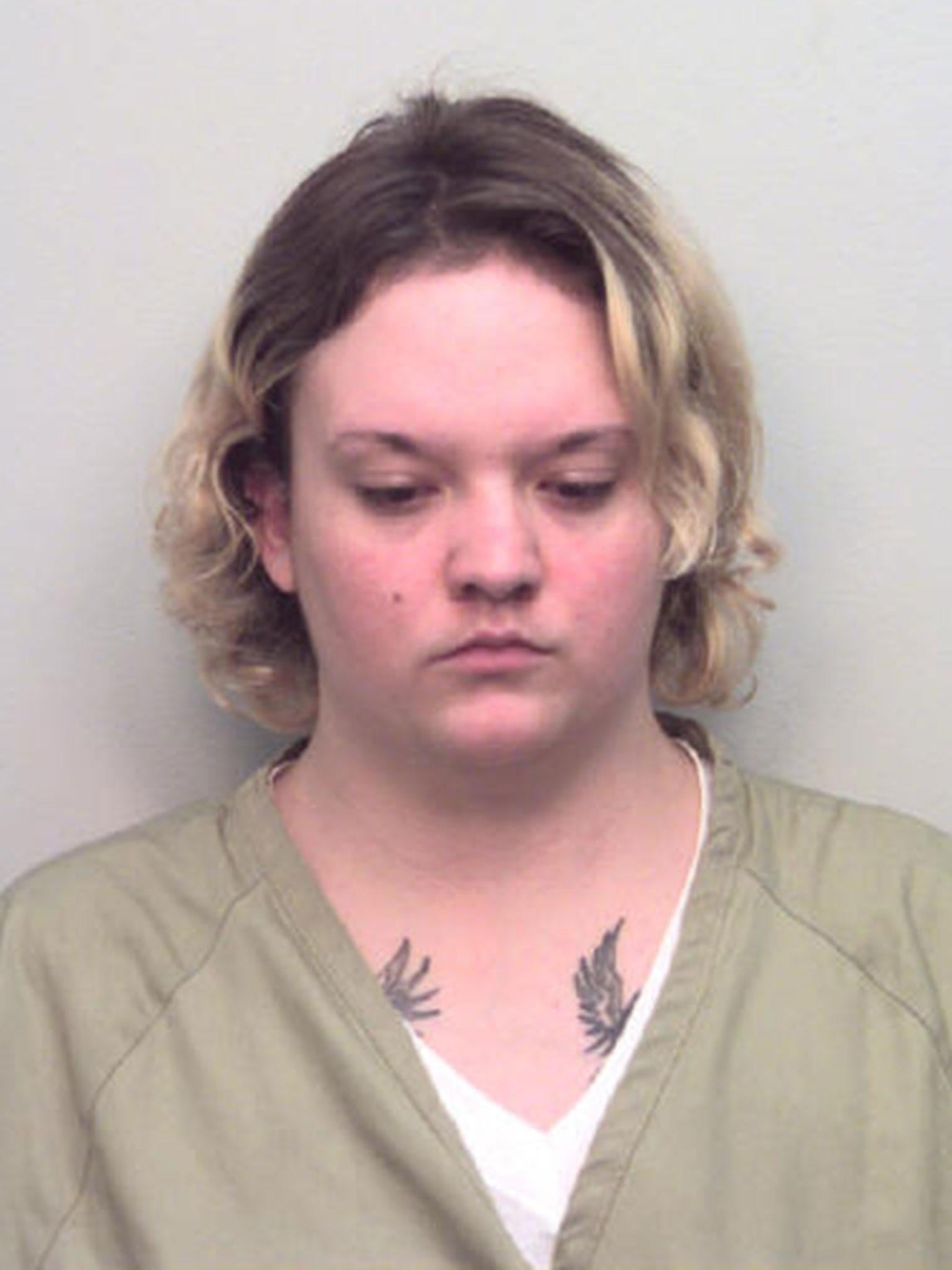Former neo-Nazi on the one thing all extremists have in common
Angela King's life was transformed when she fell in love with a black woman in prison

Your support helps us to tell the story
From reproductive rights to climate change to Big Tech, The Independent is on the ground when the story is developing. Whether it's investigating the financials of Elon Musk's pro-Trump PAC or producing our latest documentary, 'The A Word', which shines a light on the American women fighting for reproductive rights, we know how important it is to parse out the facts from the messaging.
At such a critical moment in US history, we need reporters on the ground. Your donation allows us to keep sending journalists to speak to both sides of the story.
The Independent is trusted by Americans across the entire political spectrum. And unlike many other quality news outlets, we choose not to lock Americans out of our reporting and analysis with paywalls. We believe quality journalism should be available to everyone, paid for by those who can afford it.
Your support makes all the difference.Angela King first identified as a neo-Nazi at the age of 15. She spent eight years immersed in South Florida’s far-right movement - where her hatred for minorities, aggression and violence were fully accepted - until she helped to rob a Jewish-owned store and was sentenced to five years in prison. It was behind bars that King’s hateful attitudes melted away, as she was befriended by a group of Jamaican women and fell in love with a black woman.
Now 42 and the co-founder of anti radicalisation group Life After Hate, Kings sees her damaging behaviour mirrored in those also drawn to violent extremism.
“I believe many who join violent extremist groups are trying to fill some sort of void in their lives,” King tells The Independent. “At some level, all human beings want to be accepted and loved. Sometimes, we are willing to trade the things that make us human to receive that acceptance.” In King’s experience, extremists are first drawn to being accepted into a group as a coping mechanism and hateful ideology second.
“I was an angry young woman suffering through an identity crisis during adolescence,” King recalls of her turbulent youth. “I sought a place to belong, to be accepted, and to feel like I had a voice and that I mattered. In this quest, I tried on different self-destructive behaviors and the one that fit the best was with a group of young neo-Nazi skinheads.”

As the eldest of three children in a highly conservative Baptist home where racial slurs and homophobia were part daily life, King's struggle with self-acceptance stemmed from realising she was attracted to women at the age of ten. “I did not know what it was called, nor did I know there were other people out there just like me. I did feel that if anyone ever found out, I would be excommunicated from my family and spend an eternity in a supposed burning, fiery pit in hell.”
“The neo-Nazi beliefs didn't feel like a stretch from what I already knew,” Kings says of how she was first drawn to far-right ideology. “I did not always feel hatred. It started with fear of the unknown. The fear turned into anger. The anger into hate. The hate into violence. At that young age, I internalised a great deal of bullying and negativity. I dehumanised myself and thought it was OK to do the same to others.”
“Although the beliefs are not what initially drew me into it. It was that I was accepted: anger, violence, and all. It became easier for me to blame others and to justify my own actions and insecurities by claiming superiority. I wasn't superior. I was an angry young woman who had suffered bullying, abuse, was self-destructive, irresponsible, and a high school dropout with no self-esteem.”
It was in prison - when a black prisoner struck up a friendship over a board game in the recreation area - that King found it harder and harder to maintain her racist beliefs. She was soon taken in by a group of Jamaican women.

“I was treated with kindness and compassion from women I didn't feel I deserved it from. I realised that there was overabundant commonality with the very same people I claimed to hate. We had much more in common than we did different. It has, though, taken me years, and is something I will continue to do for the rest of my life, to undo the fact that I was socialised into a system based on white supremacy. It wasn't in my control that I was born into such a system, but how I act and speak today is in my control. And I intend to use every platform at my disposal to educate others.”
Commenting on the the Unite the Right rally in Charlottesville, Virginia, where neo-Nazis, white supremacists and other far-right extremists gathered to protest the removal of a Confederate statue, King says the rally and the rise of the so-called alt-right in the US doesn’t shock her at all.
“When I was involved in the violent far-right more than two decades ago, what we see happening around us in the US right now is exactly what I was trying to make happen back then.” To King, the violent rally where Heather Heyer, a 32-year-old activist was killed, proves that the US is not a post-racial society “just because we had a President of colour”.
“The US has a sordid history of mistreating marginalised people and groups. It began with the first colonists who came to our shores fleeing religious oppression. They leveraged genocide against the indigenous people of the Americas. Moving on from that, oppression was built into the very fabric of our social systems and continues to cost lives to this day," says King.
Overcoming hatred is, therefore, not easy and unique for each individual. And while racism, homophobia, Islamophobia shouldn’t go unchecked, King argues “persuading” others to be more tolerant and accepting in a divided political climate is not the correct approach.
“We try to have compassion for the individual because us former extremists know that we were once that person. When I encounter an individual like the person I used to be, I do my best to humanise that person and to find common ground. This means that I let my guard down, allow myself to be vulnerable, and if the person is willing to listen, share the experiences and voids that led me into the violent far-right.”
"I'm not convinced that we will ever be able to prevent violent extremism one hundred percent of the time. But I do believe that, with education and awareness, we can build community resilience to it," says King, adding: “I have never met a truly happy person who hates other human beings.”
Join our commenting forum
Join thought-provoking conversations, follow other Independent readers and see their replies
Comments